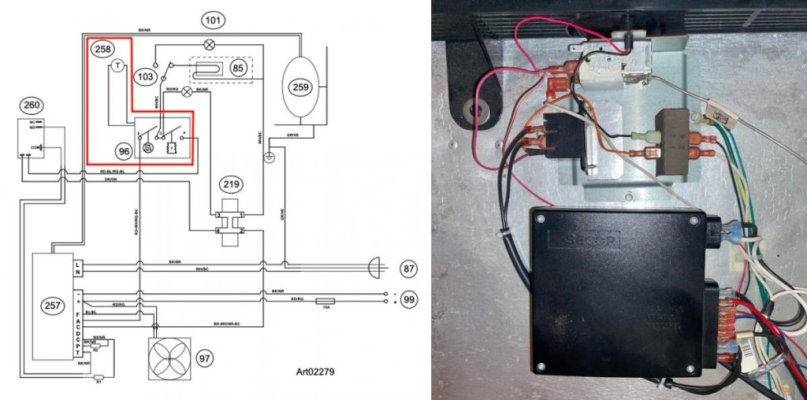kpinnn
Senior Member
About 9 years ago I replaced a Nor cold refrigerator on a new boat to us with a new 0041 Nor cold. In 9 years I bet there is less than 10 hours of use on it. The reason, It kept shutting down when in DC mode. When in AC mode it seems to work ok. We do not do a lot of slips in our travels there fore not using shore power and recently I removed the Genset. I have decided to tackle this problem and find out what is going on with this old by age but new by use refrigerator. (Tired of buying ice). Here is what I have observed and discovered. The literature says the unit must be run for 8 hours before filling. Question , AC or DC. When on AC it does cool, not sure how cold yet. Also have not run 8 hours before filling. When batteries are charged to 12.8 volts measures by Vitron Energy Smart Shunt after running a portable honda generator I hear the unit running on DC. On DC the unit does not seem to get very cold. Also at 11.9 Volts I think the unit shuts off. The literature says it shuts down at 10.4 volts. I know 10.4 volts and that battery is dead. I know time running on DC is directly related to available amp hours. I only have 230 and at 50% 115. I am installing solar and I can double the amp hours. Still I do not want to do all of this and find the Norcold is also a problem. My brother has the available amp hours I could go to and solar with a refrigerator seperate compressor and condenser. He has no run problems and has to turn the unit down, things freeze. No 8 hour pre run time. Norcold uses danfoss and I believe it has an inverter built in so it runs on AC all of the time. Any thoughts, suggestion or comments?
Ken
Ken

